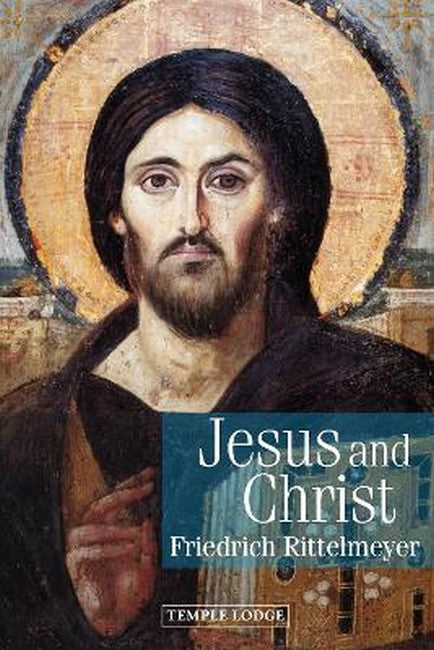FRIEDRICH RITTELMEYER (1872-1938) was a Lutheran minister and theologian who led the founding The Christian Community. Rittelmeyer came to prominence as a leading liberal theologian and preacher early in the twentieth century, advocating a socially engaged 'Christianity of deeds' (Tatchristentum). During the First World War he became one of the most high-profile clergymen in Germany to oppose the war publicly. From the 1910s his thinking was gradually influenced by the philosopher, spiritual researcher and teacher Rudolf Steiner. In 1922 a group of mainly Lutheran pastors and theology students founded The Christian Community, a Movement for Religious Renewal. Rittelmeyer remained at the helm of the movement until his death.
Description
Introduction to the Revised English Edition PART ONE: JESUS Preface to the first german edition (1912) Extract from Rudolf Steiner Enters my Life I. THE LIFE The forerunner The Baptism & Temptation The public ministry Miracles Deed, conflict and conquest True humanity and its inner replenishment Opposition from friends and enemies Traditional authority and emancipation from it Healings on the sabbath Fellowship with outcasts Meeting the oppositions The approaching Passion The entry into Jerusalem The necessity to decide Passion Week The last hours Secret sovereignty Will and Over-will II. THE PERSONALITY His physical form The ruling spirit His mind and the divine False piety His passionate vitality ... ... and absorption in the moment The woman taken in adultery The story of the tribute money His moral radiance A homeless life-respecting the ties of home His moral will His divine vocation The life-secret of his faith The Mystery of the life of God Companionship with God Superhuman self-knowledge III. THE MESSAGE A teaching or a life? The parables Admonitions The kingdom of heaven 'God was in Jesus' A new beginning The All-Father Serving God all in all Banish anxiety root and branch Prayer in search of God Life out of God's life The fire of Love The golden, royal law and its culmination The end of the world? IV. THE SIGNIFICANCE OF JESUS FOR OUR OWN TIME Did Jesus ever live? Scientific scholarship, or folklore & poetry? Can we surpass Jesus' example? The racial argument The past not directly relevant? Personal conviction Dispense with the historical Jesus? Earthly ties spurned or earthly life renewed? The significance of Jesus today and Nietzsche's sense of longing Inner resources The Spirit transfigures the world From fragmentation to integration Contemporary lifestyles ... ... and the life of Jesus The secret of true humanity The Creation and the future The governing Power Recognition the only proof Our own truth ... ... in relation to tradition Our modern cultural environment ... ... in relation to Jesus PART TWO CHRIST Foreword by Rudolf von Koschuetzki Author's Preface I. CHRIST JESUS 'He who shall come' The Baptism The Temptation The Transfiguration The Lord's Prayer Words from the Cross Resurrection experiences The Kingdom of Heaven Christians Paul's Damasus experience What is baptism? Death-Resurrection Resurrection Three thinkers: Goethe, Nietzsche, and Fichte The One Life II. CHRIST AND THE SUN Christ and the Sun Rembrandt, Goethe, and Novalis The Bible and the Sun The outer Sun The Sun enlightens The Sun warms The Sun enlivens The creation of light Seven Signs in John's Gospel Healing transformation Easter-new life True 'nature' religion III. CHRIST AND THE 'I' A glance at history and peoples The human I-experience and the divine I The mystical attitude The Johannine 'IAM' sayings The central saying East and West Israel, India and Greece Deliverance by indwelling Divine 'I' and human 'I' The 'I' in Communities-Church Congregation Community IV. CHRIST IN BODY AND BLOOD Novalis & Nietzsche The Greek and bodily beauty The Israelites and music Bread & Wine Body & Blood Experience of the Mass Christ the World-Physician Blood and the 'I' The great marriage Afterword APPENDICES 1. Christoph Rau: Rittelmeyer's Creative Sayings 2. Adam Bittleston: Friedrich Rittelmeyer as Forerunner of a Christianity of the Future 3. Emil Bock: Friedrich Rittelmeyer (1872-1938) 4. Emil Bock: Rudolf Steiner and Friedrich Rittelmeyer in Berlin Epilogue by the translator Notes Further Reading Picture Credits

